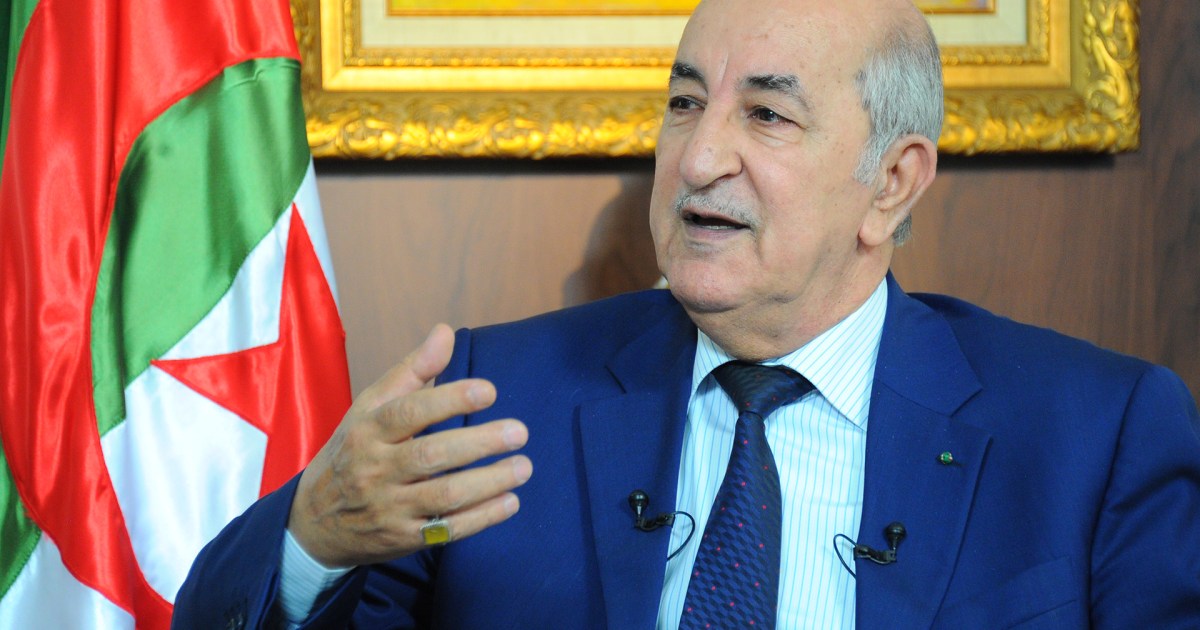Today, Wednesday, Algeria announced the immediate closure of its airspace in the face of Moroccan civil and military aircraft, and those with a Moroccan registration number, less than a month after Algeria cut diplomatic relations with Rabat due to what it described as the hostile actions of the Kingdom.
The Presidency of the Algerian Republic said that President Abdelmadjid Tebboune - Supreme Commander of the Armed Forces and Minister of Defense - chaired today a meeting of the Supreme Security Council, which decided to immediately close Algerian airspace on all Moroccan civil and military aircraft, as well as those bearing a Moroccan registration number, starting today.
The meeting of the Supreme Security Council was devoted to studying "developments on the borders with the Kingdom of Morocco, in view of the continued provocations and hostile practices from the Moroccan side," according to the council's description.
Cut the relationships
On August 24, Algerian Foreign Minister Ramtane Lamamra announced the severance of diplomatic relations with Morocco, and said - in a press conference - that "officials in Morocco bear responsibility for the deterioration of relations between the two countries," accusing Rabat of supporting two organizations he described as "terrorists" and those involved in the recent fires that broke out in Algeria.
The Algerian minister denounced what he said was a campaign that relied on imaginary scenarios targeting Algeria, and described the talk of a Moroccan diplomat about the right to self-determination in the Kabylie region as a dangerous deviation.
Lamamra indicated that severing relations with Morocco does not mean harming the citizens of the two countries, and consulates will exercise their usual role.
And the Algerian Foreign Ministry announced last July - recalling its ambassador in Rabat for consultations, after Algeria requested clarifications from Morocco regarding its position on supporting a "separatist movement" in the Algerian Kabylie region.
A statement by the Algerian Foreign Ministry did not rule out - at the time - "taking other measures" according to the development that the case will witness.
Morocco expressed its regret at Algeria's decision to sever diplomatic relations between them, and the Moroccan Ministry of Foreign Affairs described the decision as "completely unjustified", and that it was expected given what it called the logic of escalation recorded during the recent period.
In its statement, the Moroccan Foreign Ministry said that Rabat categorically rejects "the flimsy and ridiculous pretexts" behind Algeria's severing of its relations with the Kingdom.
The beginning of the crisis
The diplomatic crisis between the two countries began during the work of the meeting of the Non-Aligned Movement, which was held "remotely" on July 13 and 14, when Lamamra raised the issue of Western Sahara, a region that the Polisario Front demands its separation from Morocco, and Algeria supports in that, while Morocco sees it as an integral part of its territory.
Morocco responded - through its ambassador to the United Nations, Omar Hilal - with a memorandum distributed to the members of the Organization of Non-Aligned Countries, denouncing the raising of the issue of Western Sahara at the meeting, and then speaking about the "right to self-determination of the Kabyle people", which the Algerian authorities considered as support for a movement they describe as "terrorist". Which is based in Paris and demands what it calls the right to self-determination in the Algerian Kabylie region.

